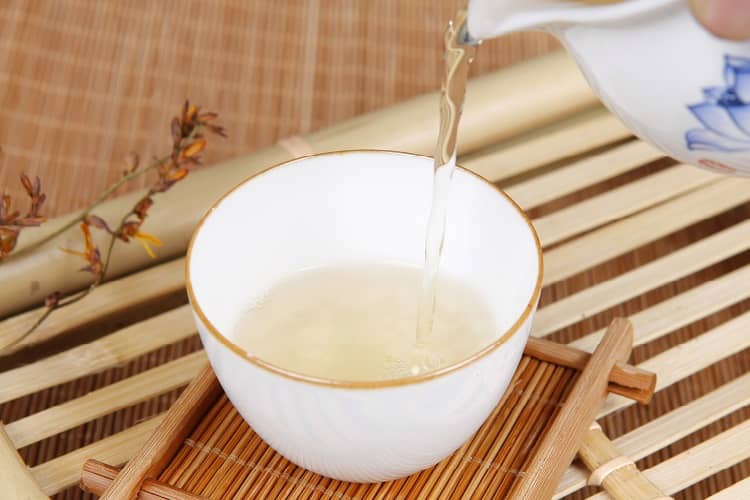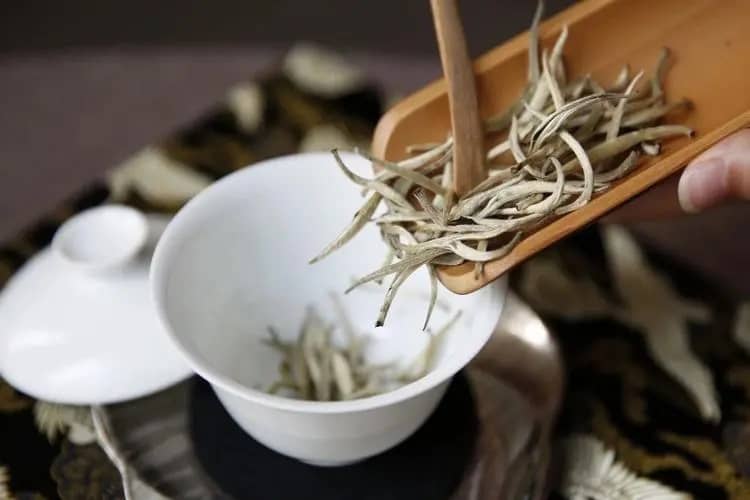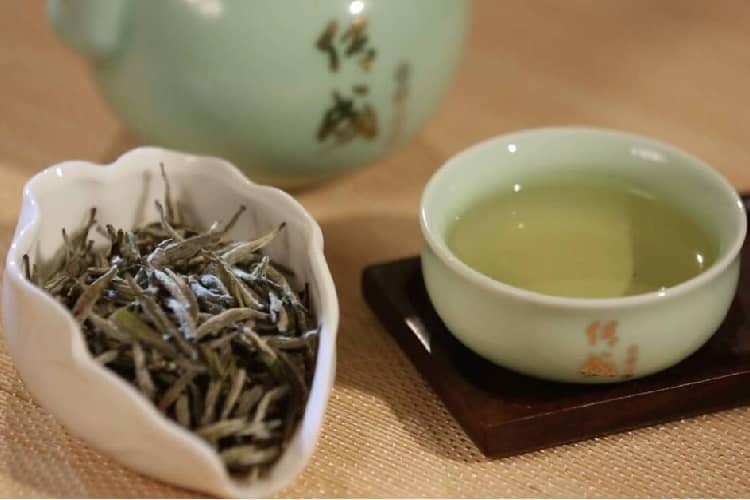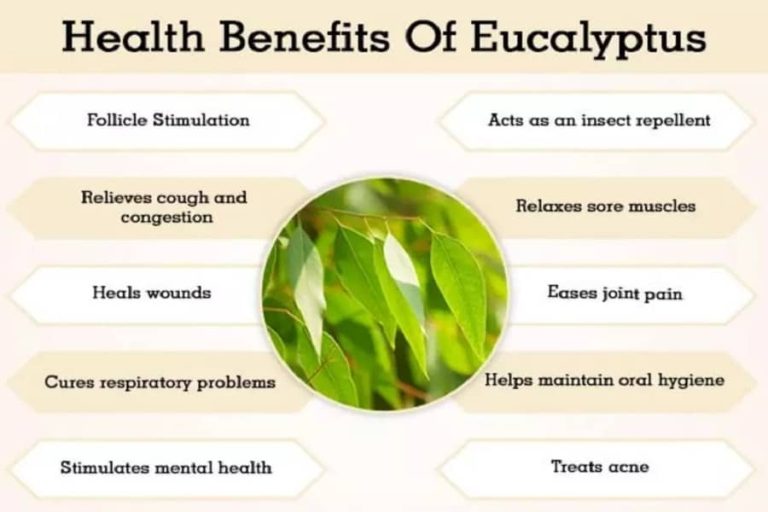Is White Tea Good for Your Health?

White tea is a type of tea that is known for its delicate flavor and numerous health benefits. It is derived from the Camellia sinensis plant, just like green tea and black tea, but it undergoes minimal processing. This minimal processing allows white tea to retain more of its natural compounds and subtle flavors.
The history of white tea can be traced back to ancient China, where it was initially reserved for royalty and the elite. The production of white tea involves picking young tea leaves and buds before they fully open, and then drying them naturally or with minimal processing.
In recent years, white tea has gained significant popularity among health-conscious individuals due to its perceived health benefits and unique taste. Many people are intrigued by its delicate and subtle flavors, which are often described as floral, fruity, and slightly sweet. Additionally, the growing interest in natural and minimally processed foods has led to an increased appreciation of white tea’s unique qualities.
Next, we will explore the nutritional profile of white tea and delve into its potential health benefits.

The Unique Composition of White Tea
- Minimal processing: White tea is known for its minimal processing, which involves picking young tea leaves and buds and allowing them to wither and dry naturally or through gentle techniques like steaming or air-drying. This minimal processing helps retain the natural compounds present in the tea leaves, including antioxidants, polyphenols, and catechins. By preserving these compounds, white tea maintains its unique flavor and potential health benefits.
- Abundance of Antioxidants: White tea is rich in antioxidants, which are beneficial compounds that help combat oxidative stress in the body. It contains a high concentration of polyphenols, such as flavonoids and catechins, which act as powerful antioxidants. These antioxidants help neutralize harmful free radicals, protect cells from damage, and support overall health and well-being.
- Rich in Polyphenols and Catechins: Polyphenols and catechins are types of antioxidants found abundantly in white tea. These compounds have been associated with numerous health benefits. Polyphenols have anti-inflammatory properties and may help reduce the risk of chronic diseases, including heart disease and certain types of cancer. Catechins, particularly epigallocatechin gallate (EGCG), are believed to have potent antioxidant and anticancer effects, contributing to white tea’s potential health benefits.

Health Benefits of White Tea
- Enhanced Immune Function: White tea has been suggested to possess immune-boosting properties. Studies indicate that the antioxidants and other bioactive compounds in white tea may help strengthen the immune system, enhance immune response, and improve resistance to illnesses. However, more research is needed to fully understand the extent of its immune-enhancing effects.
- Potential Cancer Prevention: Research suggests that white tea may have anticancer properties. Its high concentration of antioxidants, such as catechins, may help inhibit the growth of cancer cells and prevent tumor formation. Some studies have shown promising results, particularly in relation to skin, lung, colon, and prostate cancers. However, further research is required to establish the efficacy and safety of white tea as a cancer preventive measure.
- Cardiovascular Support: White tea’s antioxidant and anti-inflammatory properties may contribute to cardiovascular health. It may help reduce the risk of heart disease by preventing the oxidation of LDL (bad) cholesterol, improving blood vessel function, and reducing inflammation. Additionally, some studies suggest that white tea may help lower blood pressure levels. Nevertheless, lifestyle factors and overall dietary patterns are crucial for maintaining a healthy heart.
- Weight Management Aid: White tea has been studied for its potential impact on weight management. Some research suggests that the catechins in white tea may help boost metabolism, increase fat oxidation, and promote weight loss or weight maintenance. However, the effects on weight management are modest, and incorporating white tea into a balanced diet and active lifestyle is essential for achieving and maintaining a healthy weight.
- Skin Health Promotion: White tea contains antioxidants and polyphenols, which can benefit skin health. These compounds help neutralize free radicals that contribute to skin aging, thus potentially slowing down the aging process. White tea’s anti-inflammatory properties may also help soothe and calm irritated skin. While more research is needed, white tea has shown promise in reducing the appearance of wrinkles, improving skin elasticity, and promoting overall skin health.
It’s important to note that while white tea offers potential health benefits, individual responses may vary, and excessive consumption should be avoided. As with any dietary changes, it is advisable to consult healthcare professionals before making significant modifications to your diet or lifestyle.

Considerations and Precautions
It’s important to emphasize the importance of consuming white tea in moderation. While white tea offers potential health benefits, excessive intake may have adverse effects, such as caffeine sensitivity or digestive issues. Additionally, individual responses to white tea may vary, so it is essential to listen to your body and adjust consumption accordingly.
Furthermore, it’s crucial to be mindful of possible interactions with medications and existing health conditions. Some compounds in white tea, like caffeine, may interact with certain medications or exacerbate certain health conditions such as anxiety disorders or gastrointestinal problems. If you have any concerns or pre-existing conditions, it’s advisable to consult with healthcare professionals before incorporating white tea into your routine.
Conclusion
In conclusion, white tea is a unique and minimally processed beverage that offers various potential health benefits. Its abundance of antioxidants, polyphenols, and catechins make it a valuable addition to a balanced diet and healthy lifestyle.
The discussed health benefits include enhanced immune function, potential cancer prevention, cardiovascular support, weight management aid, and skin health promotion. However, it’s important to remember that these benefits are not guaranteed, and individual responses to white tea may vary.
To fully explore the advantages of white tea, it is recommended to consume it in moderation as part of an overall healthy diet and lifestyle. As with any dietary changes or supplements, it’s wise to consult healthcare professionals to ensure it aligns with your specific needs and to address any concerns or interactions with medications or pre-existing conditions.
Enjoy the potential benefits of white tea while appreciating its delicate flavor and natural compounds. Cheers to better health and well-being!

FAQ: White Tea Good For Health
Is white tea good for weight loss?
White tea may aid in weight loss due to its potential ability to boost metabolism and increase fat oxidation. However, the effects on weight loss are modest, and incorporating white tea into a balanced diet and active lifestyle is crucial for achieving and maintaining a healthy weight.
Is white tea caffeinated?
Yes, white tea contains caffeine, although the exact amount can vary. However, compared to other types of tea, white tea generally has a lower caffeine content. If you are sensitive to caffeine, it’s advisable to consume white tea in moderation or opt for caffeine-free varieties. Read more Does white tea have caffeine?.
Does white tea help with skin health?
White tea contains antioxidants and polyphenols that can benefit skin health. These compounds help neutralize free radicals that contribute to skin aging, potentially slowing down the aging process. White tea’s anti-inflammatory properties may also help soothe and calm irritated skin, promoting overall skin health.
Is white tea better than green tea?
White tea and green tea both offer health benefits, but they have some differences in flavor, processing, and nutrient content. White tea is minimally processed and has a delicate, subtle flavor, while green tea undergoes more processing and has a slightly stronger taste. In terms of antioxidants, both types contain beneficial compounds, but the specific types and amounts may vary. Ultimately, the choice between white tea and green tea comes down to personal preference.
Can white tea prevent cancer?
White tea has been studied for its potential anticancer properties. Its high concentration of antioxidants, such as catechins, may help inhibit the growth of cancer cells and prevent tumor formation. Some studies have shown promising results, particularly in relation to skin, lung, colon, and prostate cancers. However, further research is needed to establish the efficacy and safety of white tea as a cancer preventive measure.
Does white tea boost the immune system?
White tea has been suggested to possess immune-boosting properties. The antioxidants and other bioactive compounds in white tea may help strengthen the immune system, enhance immune response, and improve resistance to illnesses. However, more research is needed to fully understand the extent of its immune-enhancing effects.
Is white tea good for heart health?
White tea’s antioxidant and anti-inflammatory properties may contribute to cardiovascular health. It may help reduce the risk of heart disease by preventing the oxidation of LDL (bad) cholesterol, improving blood vessel function, and reducing inflammation. Additionally, some studies suggest that white tea may help lower blood pressure levels. However, lifestyle factors and overall dietary patterns are crucial for maintaining a healthy heart.
Does white tea have any side effects?
White tea is generally safe for most individuals when consumed in moderation. However, it does contain caffeine, which can cause side effects such as nervousness, insomnia, or increased heart rate in sensitive individuals. Additionally, excessive consumption may lead to digestive issues. If you have any concerns or pre-existing conditions, consult with healthcare professionals before incorporating white tea into your routine.
Can white tea help with digestion?
While white tea is not specifically known for aiding digestion, it is a gentle and mild beverage that can be enjoyed as part of a balanced diet. Some people find that consuming white tea helps soothe their digestive system. However, individual responses may vary, and other factors like diet and lifestyle play a significant role in maintaining healthy digestion.
How much white tea should I drink per day?
There is no strict guideline on how much white tea one should consume per day. It’s generally recommended to limit caffeine intake and listen to your body’s response. Start with a moderate amount, such as 1-2 cups per day, and adjust according to your tolerance and preferences. Remember to consider other sources of caffeine in your diet as well.
















